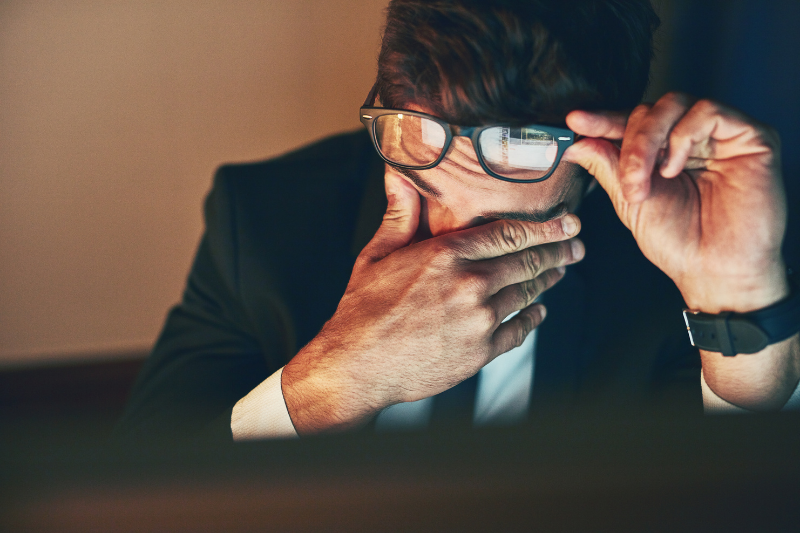Feeling sleepy after lunch and not sure how to get back into your workflow? If a post-meal slump has become an inevitable part of your daily routine, read on for our best productivity hacks.
For those who are feeling overtired after lunch every day, and struggling to keep productive, there may be a number of factors affecting your energy levels. We know food is supposed to make us feel energetic, but more often than not that is not the case.
In fact, it is important to deal with your midday slump in an efficient and healthy way, since it is likely to affect your productivity and performance at work. If you are still struggling with post-lunch fatigue, here are some productivity hacks for you to follow.
Balance Your Diet
The truth about the after-lunch slump is that it has more to do with what you eat for lunch rather than when you eat. In fact, health experts recommend not to keep the stomach empty for more than five hours for productivity enhancement, meaning skipping lunch is not a solution to your midday fatigue.
Control Your Blood Sugar Levels
A high-carb meal not only causes digestive problems, but also post-meal slumps. Excessive consumption of carbohydrates is a common factor of insulin resistance– a physical condition where our body cells become unresponsive to insulin, the hormone that delivers glucose broken down from carbs to cells. When cells do not receive enough glucose- their fuel for cellular functions- their performance efficiency drops, causing fatigue.
Replace Carb with Protein
Protein is a good nutriment for stabilising blood glucose levels. Protein takes longer to be metabolised in relation to carbs, prevents post-meal blood sugar spikes, and allows one to feel full for a longer period of time. By eating protein, you can also avoid post-lunch sugar cravings, which are another common cause of blood sugar spike.
Consume Green Leafy Vegetables
Greens are rich in magnesium, a mineral that facilitates most biochemical processes in your body. Lack of magnesium would eventually impede metabolism, keeping the blood sugar levels high and thus the cells unfueled. General symptoms of magnesium include fatigue, loss of appetite, mild anxiety, and headache.

Pump up Your Adrenaline
Many of those working a nine to five are likely to rely on caffeine to get through their day. While caffeine is effective in stimulating brain activity, you must do it the right way as drinking coffee is not a natural biological process for producing adrenaline.
Schedule Your Daily Caffeine-Intake
While coffee after lunch seems like a good way to stay awake during working hours in the short term, it is never healthy in the long term. Excessive coffee consumption can make your adrenal glands (organs that release adrenaline) less responsive to caffeine, possibly making you a caffeine addict over time. This is why you should have a caffeine-intake schedule and possibly cut coffee over time. If you do not know where to begin, set a limit of two cups of coffee per day and prevent yourself from drinking coffee after 2pm.
Listen to Music
A study highlights the benefits of listening to music when dealing with stress. Music can either stabilise or stimulate your nervous system, giving you the options to enhance your work performance. When it comes to post-lunch fatigue, you might want to try some hype music to pump up your adrenaline without involving any artificial chemicals.

Stay Active
We all know how difficult it is to sit still while avoiding drowsiness after lunch. In fact, physiologists argue that different gestures have an impact on the amount of melatonin being produced, which controls your sleep-wake cycle. This is precisely the reason why you should never sit still for too long after lunch.
Take a Short Walk
Refrain from sitting still for an extended period of time. Even a short journey to the lavatory can help you prevent a post-meal slump.
Stretch Regularly
Stretching has now become a necessary routine for all office workers. It not only helps you relieve your tech neck, but it also helps you stay awake by facilitating blood flow, which increases your energy levels.

Allow Your Eyes to Recover
If you are going out for lunch, you have already been staring at your computer screen for at least three hours, and will be coming back to it for a few more. We all know that staring at digital screens for hours is bad for our eyes, but did you know that it can also cause fatigue? Studies have shown how dry eyes cause enervation and affect work productivity. Fortunately, there are simple ways to manage your eye health at work.
Avoid Artificial Lights
While it is almost impossible for office workers to not use electronic devices these days, taking a short break from time to time will help avoid eye strain. Digital screens are the major cause of asthenopia, which can worsen work performance. Look away from your computer screen at least every 30 minutes and gaze at a distant object.
Exercise Your Eyes
There are plenty of ways to exercise your eyes while sitting at your desk. These exercises help you avoid eye strain by relieving your eyes. The most basic exercise is to roll your eyes by looking right and left without moving your head and do the same up and down. Do it slowly and carefully as if you are stretching a muscle.

Related Articles
Office Wellness Guide: Relieving Tech Neck
5 Caffeine Substitutes That Give You The Same Kick As Coffee
Office Wellness Guide: 5 Ways to Maintain a Healthy Body and Mind





